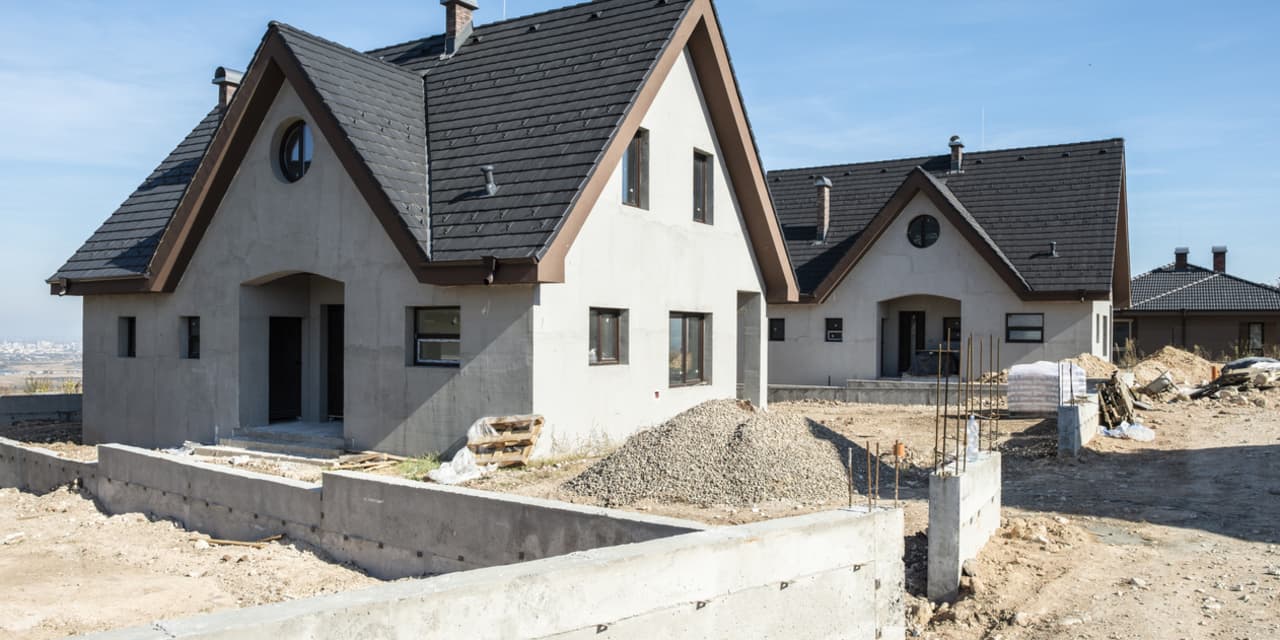The numbers: Construction of new U.S. homes fell 14.8% in January as home builders scaled back new projects.
The pace of construction slowed as builders curtailed their activity amid wintry weather in the U.S. in January.
Housing starts fell to a 1.33 million annual pace from 1.56 million in December, the government said Friday. That’s how many houses would be built over an entire year if construction took place at the same rate every month as it did in January.
Housing starts fell to the lowest level since August 2023.
The drop in January was the sharpest since April 2020, during the coronavirus pandemic, when starts fell by nearly 27%. Not including that pandemic drop, housing starts fell by the most since 2015.
The data fell short of expectations on Wall Street, where the expected rate was 1.45 million. The numbers are seasonally adjusted.
Single-family and multi-family construction fell in January, with the latter registering a nearly 36% drop.
But in a more recent survey of builders in January, builders were upbeat about future sales of new homes and optimistic about demand, as they expect interest rates to fall through the rest of the year.
Building permits, a sign of future construction, fell 1.5% to a 1.47 million rate.
Key details: Builders scaled back construction of new single-family homes, leading to a 4.7% drop, as well as apartments, which fell 35.8%.
The only region where builders increased construction was the Northeast, where single-family starts rose 26.7%. Every other region posted a drop in January.
Permits for single-family homes rose 1.6% in January, while apartment permits fell 9%.
Big picture: Housing starts are generally a volatile data series, but the data indicate that that builders slowed down construction of new homes in January.
But most builders are optimistic about the future, as seen in a recent survey, and expect falling mortgage rates to boost home-buying demand.
Meanwhile, builders continue to benefit from the tailwind that is the persistent shortage of previously owned homes. While new homes only formed a tenth of overall sales historically, that share has jumped to 30%, the National Association of Home Builders told MarketWatch.
What are they saying? “Housing starts fell by the largest amount since April 2020 in January, led by a huge drop in multi-family starts. We suspect the multi-family sector will continue to be a drag on new development this year, given the huge number of multi-family units already under construction,” Thomas Ryan, property economist at Capital Economics, wrote in a note.
“The sharp pullback in starts could reflect bad weather in January,” Ali Jaffery at CIBC Economics, wrote in a note. But as mortgage rates inch up, “housing activity should remain weak until the Fed signals a more clear intent to ease policy,” he said.
Market reaction: U.S. stocks
DJIA
SPX
were up early Friday, and the yield on the 10-year Treasury note
BX:TMUBMUSD10Y
was over 4.3%.
On the back of the drop in housing starts, SPDR S&P Homebuilders ETF
XHB
traded lower during the morning session, as well as all of big home builder stocks, including D.R. Horton
DHI,
KB Home
KBH,
Lennar
LEN,
Pulte Homes
PHM,
and Toll Brothers
TOL,
Read the full article here







